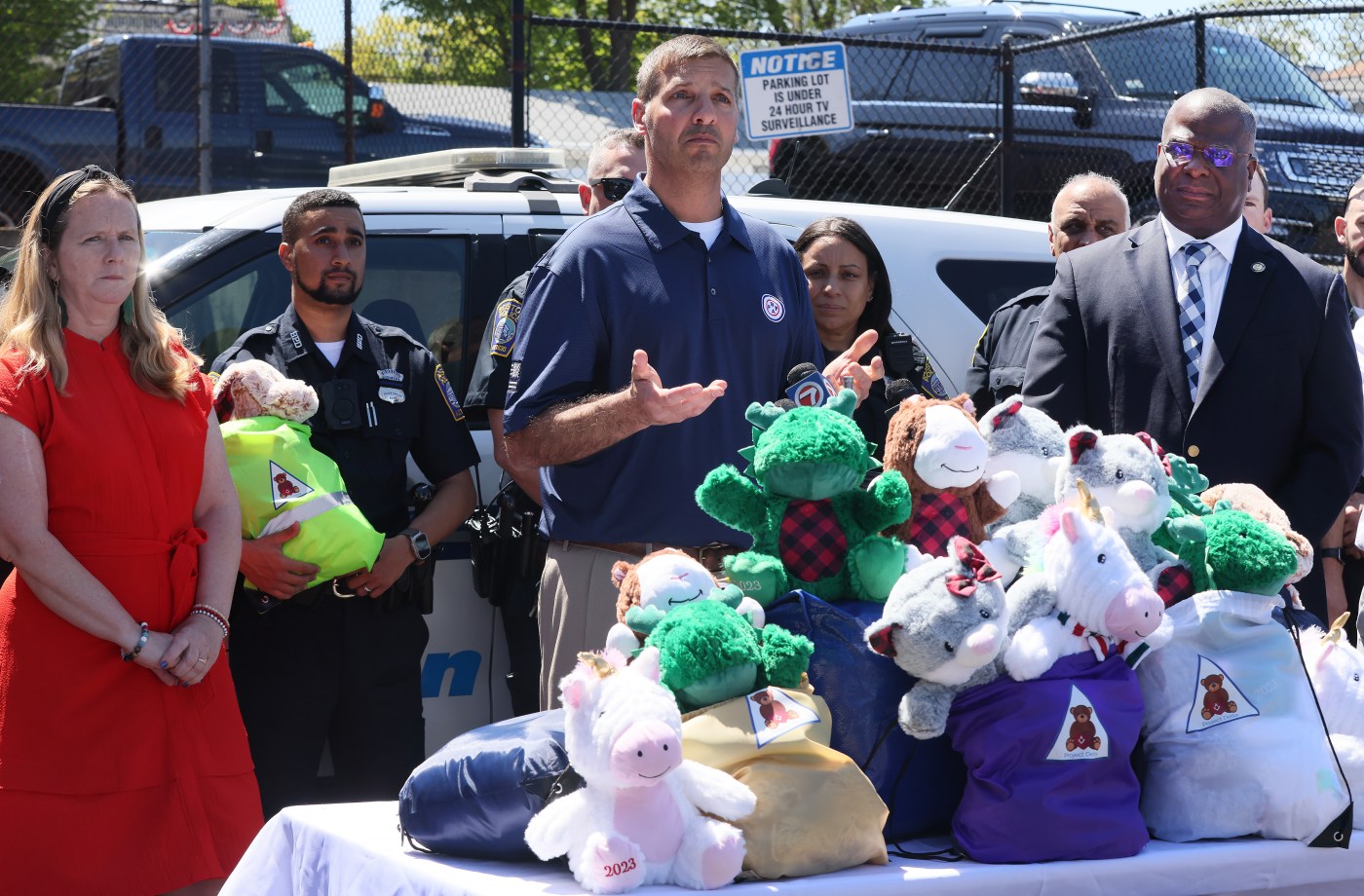
Mental Health Awareness Month: How to talk to kids when violent events happen
When caregivers can’t shield kids from incidents of extreme violence around the world or near home, a Boston Medical Center psychiatrist explains to patients, talking openly about it may actually help.
“A lot of parents feel they have to have all of the answers prepared before they have a conversation with a kid about violence that may be happening in their community, as well as in other communities they may be hearing about in the news,” said Dr. Christine Crawford, an adult, child, and adolescent psychiatrist at BMC. “But really, it’s not about providing the answers and being a problem solver. It’s really about connecting with your kid, to understand how they understand the events that have been taking place around them and in the world.”
Information about extreme violence in the world — with wars in Ukraine and Gaza and record-high gun violence closer to home in the U.S. — is becoming more accessible than ever to children and teens. Events like these can cause “vicarious trauma” within families no matter where you are, Crawford said.
At the start of this Mental Health Awareness month, Crawford is encouraging more parents and caregivers to talk about it.
Many parents worry about how to have difficult conversations about violence with their kids, Crawford said. In these situations, she said, it’s important to be curious and focus on connecting with the kid.
“Say if there was an incident in (a kid’s) community, in which there was something related to gun violence, and it was pretty close,” Crawford said. “And that’s terrifying for anyone, right? Rather than starting the conversation by saying, ‘Oh, I know that has really affected you. That’s terrible. That’s scary.’ To say like, ‘I’m really curious, I wonder how you’re doing? How are things been going for you?’ So you’re connecting.”
From there, the psychiatrist added, parents can try to create space for kids to share their thoughts and reactions and then “model” ways to cope with stressful events.
“You can say, ‘To be honest with you, hearing about what happened in our community, it made me feel just really sad,’” said Crawford. “‘The way that I’ve been dealing with my sadness is I’ve been spending a lot of time talking to my friends and going to the gym, because it helps me feel a bit better.’ So not only are you modeling how to talk about your thoughts and feelings, but providing some examples of effective coping strategies for dealing with the intense emotions.”
Some kids may not be receptive or ready to talk about situations like these, Crawford said, and that’s ok. What’s important is to “plant the seed to communicate to your kid that you are willing and open to have this conversation” and maybe they will circle back, she added.
Crawford said caregivers should also consider reflecting on how they feel about the event to prepare and feel comfortable talking to a kid.
Caregivers can also keep an eye out for how a violent event or events may impact their kid’s behaviors and patterns over time, Crawford said. When kids are seeming to have persistent fears or stress or their ability to function is impacted, a pediatrician can be a good first point of contact for any emotional or behavioral concerns.
“So many things are happening in the world, but we’re not talking about how to talk about them in a meaningful way, and how to talk about it in a way that really centers the kid’s experience,” said Crawford. … “It’s really all about good social-emotional development for your child when you engage in these conversations about how to deal with difficult things.”


